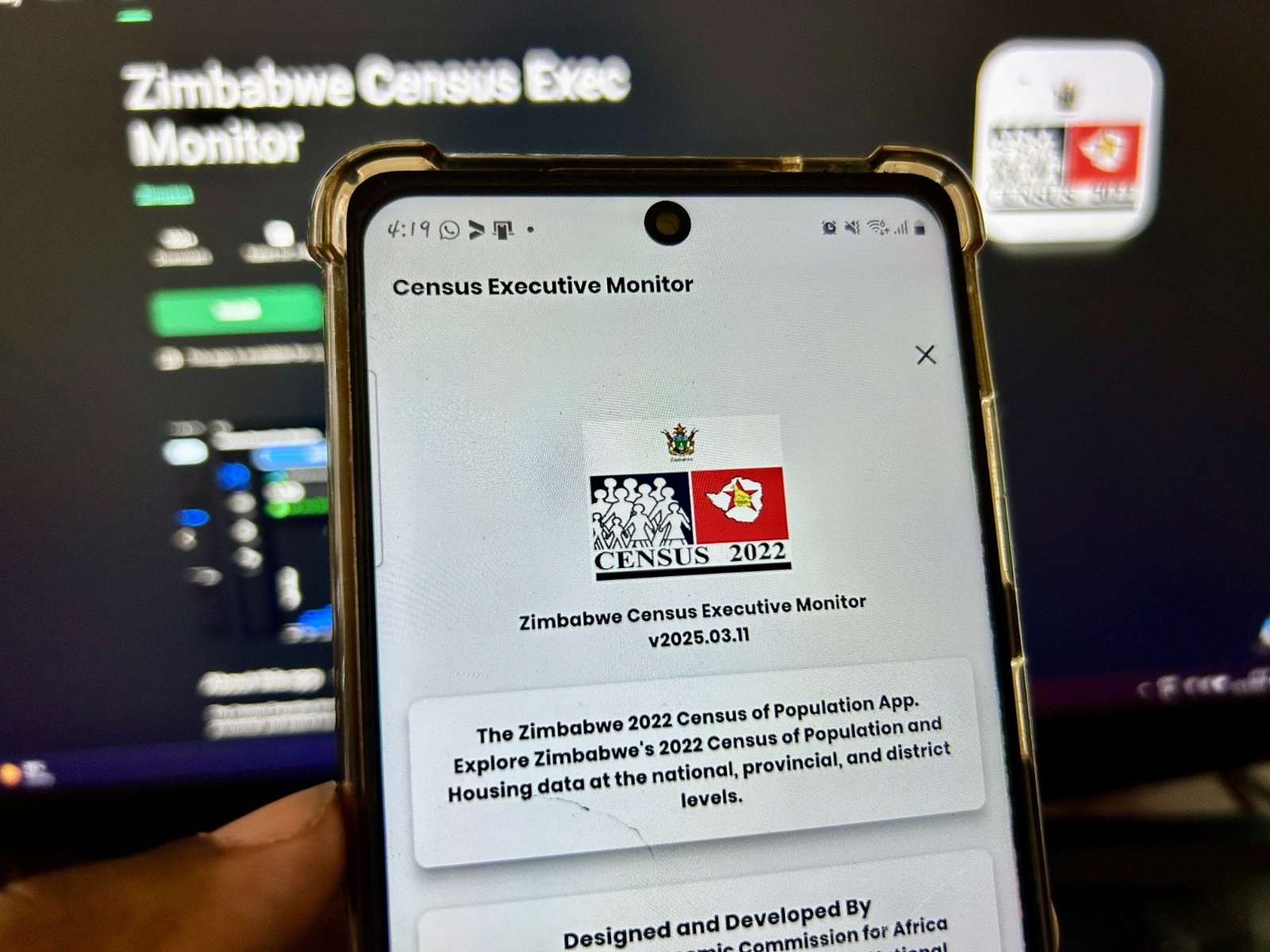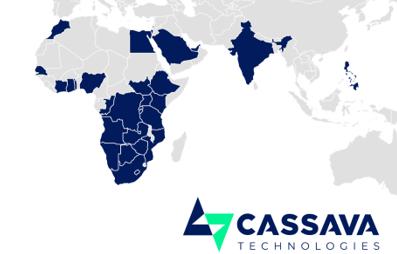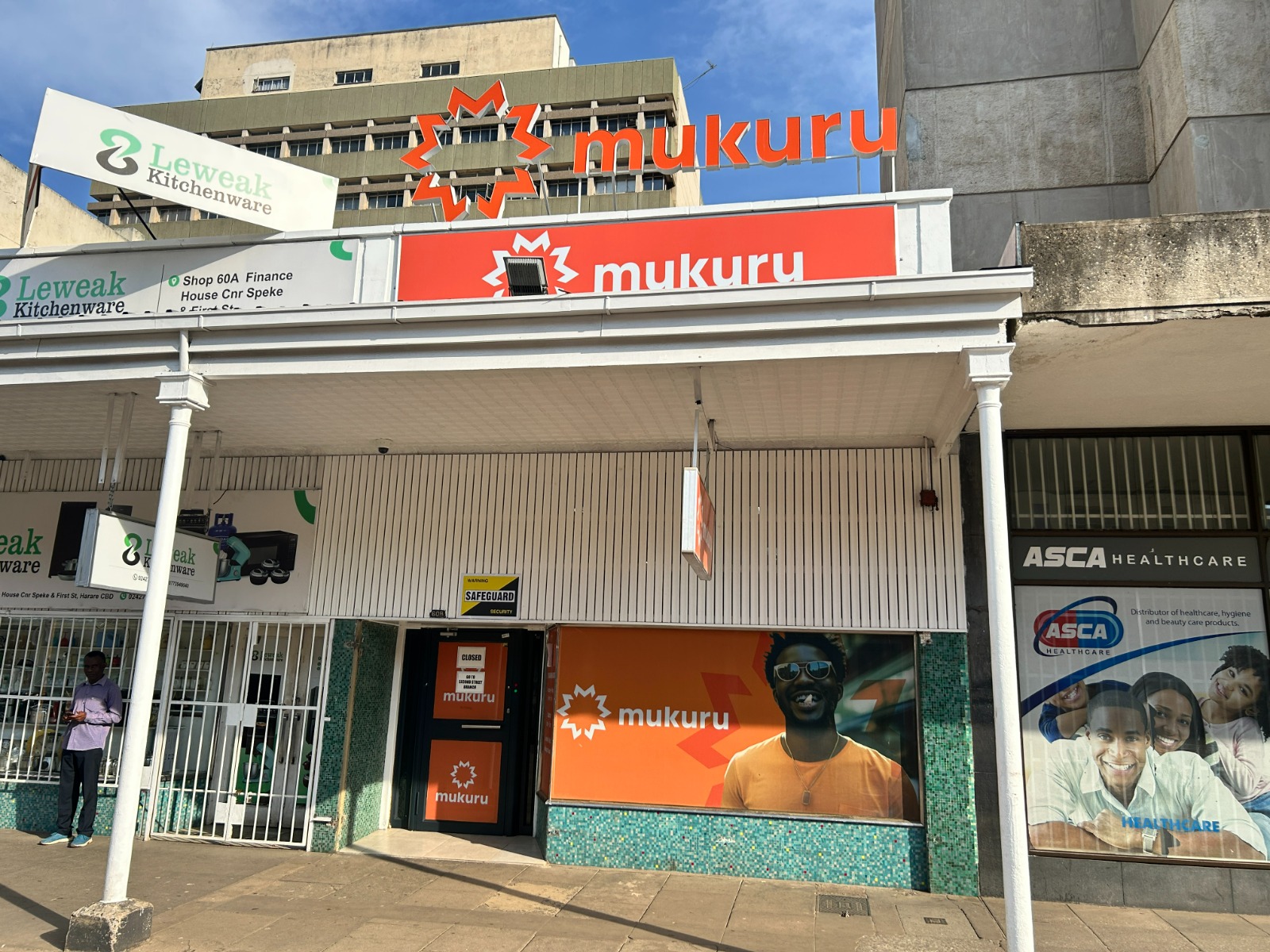 Conventional currencies are broken. No one knows that better than the Zimbabwean who watched helplessly as institutions – government, politicians, bankers – they trusted to look after the value of their money conspired and eroded hard earned savings to nothing over a few years.
Conventional currencies are broken. No one knows that better than the Zimbabwean who watched helplessly as institutions – government, politicians, bankers – they trusted to look after the value of their money conspired and eroded hard earned savings to nothing over a few years.
Paper was printed wantonly, and the value of savings lost faster than the average Zimbabwean could figure out what was going on, or learn how to protect their money. As if this was not enough, unscrupulous bankers resorted to using depositor funds speculatively to buy bricks and cars, which eventually got them shut down, and the biggest loser was none other than the depositors. A system trusted for so long to deliver, bared its inherent weaknesses and more importantly, that it didn’t care about the depositors that oiled it. People moved back in time to barter trade and mattress banking.
Much of the western world was to learn this hard lesson too. The conventional currency system, previously trusted to deliver, has proved it has so many holes allowing it to be abused by institutions that control and run it.
But this is not the only problem. Payments with conventional currency on the internet are a huge pain. And again no one knows that better than a Zimbabwean. Anyone that has tried to make (or receive) internet payments in Zimbabwe has realised soon enough that conventional currency is alien to the open nature that makes the internet the powerful system it is. They realise that on the internet PayPal answers to the US banks and the US government. They realise that Amazon does to. And so does Facebook. The ultimate realisation is that a political squabble between two governments can effectively close and break internet functionality for ordinary people that just want to transact.
Bitcoin, a relatively new digital currency whose recent hype, highs and lows have afforded it mainstream attention, suggests a solution to these fiat money problems. Bitcoin does away with the need for a third trusted party – like PayPal, governments, banks etc… – by basing the currency on an open peer to peer network of computers that maintain, together, a public definitive ledger of all transactions going through the system. The public ledger means a Bitcoins are not double spent.
The Bitcoins are like virtual gold with new Bitcoins mined on the internet by very powerful machines, predictably adding more to the universal pool of Bitcoins at given intervals. This is done in such a fail proof way that makes it impossible for anyone to create new Bitcoins wantonly the way governments “quantitatively ease” problems with conventional currency. The Bitcoins are also finite and will stop being produced by the machines when they reach $21 million, all without intervention from central ‘trusted’ regulatory authority.
Bitcoin also solves the problem of government control (and government squabbles affecting ordinary people) by allowing individuals to hold Bitcoins anonymously. Bitcoins can be paid by anyone and received by anyone anonymously. Like the internet.
You can read more about how Bitcoin works here.
But Bitcoin has its problems. One big one is its susceptibility to hacking. Not in terms of rendering the whole system useless, but in terms of influencing Bitcoin value so much it can fluctuate to crazy lows. Or, in some cases, hacked Bitcoin exchanges (created to enable people to cash Bitcoins, or buy them) go down with customer Bitcoins the same way banks have.
There’s also a whole ongoing debate about the future of Bitcoin. It’s been called a bubble. But after bursting at least once earlier this month, Bitcoin value is on the rise again. Apart from the hack attacks on Bitcoin exchanges like that on the largest exchange, Mt Gox, last week, there’s also argument that the system is based on software and that all software has vulnerabilities. There’s also the reality, like the internet, that a system that encourages anonymity, can be abused for illegal activities. Activities that trusted governments, banks and regulators have so far fought with anti-money laundering restrictions for conventional currency.
Its inherent problems notwithstanding, the possible opportunities that Bitcoin presents, especially for countries like Zimbabwe, are hard to ignore. Afrinnovator’s Mbwana Alliy gave examples earlier this month for situations where Bitcoin would be a great solution for example for a Zimbabwean developer to receive payment for their freelancing online.
What about using them as in investment or even to save money long term? Is it wise for Zimbabweans to consider this especially with the ever present message from the those determine such outcomes that we may return to the Zimbabwean dollar, and that they would dictate how this return would work?
Have you considered Bitcoins yourself? As a merchant or freelancer would Bitcoin present the opportunity to get paid by a global pool of customers convenient in a way that both Vpayments and EcoCash can’t? As an internet customer do you wish more merchants started accepting Bitcoins?













Comments
32 responses
Ok, i think i am getting oooold. In laymen’s terms what is a bitcoin.
I have tried researching and all but i just don’t get it. Seems my brain will do well with some de-fragmentation…a lot of garbage in there….Paypal, Ecocash, Mukuru, Kruger Rands, vPayments, eWallet, VISA, MasterCard…a lot of things in my head!
A great resource is this Wired article from 2011: http://www.wired.com/magazine/2011/11/mf_bitcoin/
If you have any specific questions though, shoot away and where i know I will provide the answer, or someone here will.
Read through the article on wired it filled with incidences where people lost thousands either by hackers attacking them, or them mistakenly deleting the wallets on their computers as there is no central control of the Bitcoin System. Bitcoin seems just like a bubble which will soon fade because increased use is exposing its weaknesses. If Zimbabweans were to use this they would risk losing their monies no doubt
I wouldn’t call that a great resource since it very prematurely declared Bitcoin dead. The best resource to get raw information is probably the Bitcoin wiki at http://bitcoin.it/wiki
There are quite a few other communities like http://reddit.com/r/Bitcoin where you can ask whatever questions you may have. Another that has a forum and is focused on Bitcoin use in Kenya and Africa is http://bitcoins.co.ke
The wired article is a great resource because it went into great detail about how Bitcoin started at a time when Bitcoin wasn’t a as hyped as it is now… The article declares death but inside there’s just decline, which, when the article was written, was true. I think it remains a great resources especially read along with the Wikis. Reddit can be a flood of unverified information for a beginner
http://bitcoin.it/wiki maya mdhara murikuda kudya mari dzevanhu mahara
I don’t considered Bitcoins myself because it still only accepted by a very small group of online merchants besides as mentioned the system could contain unexploited flaws and iince there is no central authority governing Bitcoins, no one can guarantee its minimum valuation. Ini hangu handidi, ndaramba!
How do l get bitcoin card in zimbabwe
The part you don’t mention, is the aforementioned Zimbabwean developer starving to death because he cannot buy anything with bitcoins. That and no minor currency, meaning his sadza is going to cost him a full bitcoins share value.. 144 USD at one point..
This is early days even for Bitcoin in counties like Germany and the US where it’s more widely used. One of the great benefits of something like Bitcoin for Zimbabweans is when they do some work and receive payment in Bitcoin, that can be turned into whatever else with near zero chance of fraud. This is because if functions like digital cash. Irreversible. Compare this to paying 50% or more to convert PayPal (since it can be so easily charged back) and it starts to look quite attractive.
Bitcoins are referred to by many as virtual currency but bitcoins like rare postage collectibles can never be money. The Open Source project “Bitcoins” by its own admission refers to bitcoins as experimental digital currency.
There is not central authority for issuing bitcoins and their designer is not even known. He is one shadow character who uses the pseudonym Satoshi Nakamoto, why the lack of transparency. You cant have something that is defined as a currency without basic transperancy about its origins, production and issuiong.. In terms of production bitcoins use a peer-to-peer networking, hello BitTorrent.
The value of bitcoins is extremely volatile like the Zim dollar. For example on 10 April 2013, Bitcoin dropped from a price of $266 to $105 before returning to a value of $160 within six hours. Now if that doesnt look like the bearer check losing a few zeros.
They have been reported cases of bitcoin hacking by botnets and hackers so its not safe, we all know what viruses can do to your computer.
Bitcoins is by nature not a currency but a form of investment which is not the role of money, money is supposed to be used as something that facilitates transactions. Money has only one purpose–to facilitate transactions, that is buying and selling products and services and securities. All the other purposes of money flow from this basic function.
When you buy bitcoins, they are stored as a piece of software in your computer. When their value increase of which they do often you are richer, so bitcoins sort of remind me of shares.
Actually I would equate bitcoins to a pseudo ponzi scheme. Drug traffickers and money launderers have jumped on to the bitcoin bandwagon due to the anonymity of the whole psedo currency system.
Like borrowing use money to buy bitcoins that you are willing to use. There was a recent bubble burst in bitcoin value a few weeks ago, so tread with caution, actually dont go there.
It’s true, bitcoin is decentralized, but that’s really a strength, not a weakness.
But more importantly, there’s nothing lacking in transparency with bitcoin, it’s completely, 100% transparent. Bitcoin is open source software, any programmer (or person willing to learn) can look at the code themselves and see for themselves how it all works. But not only that, in the bitcoin system, everyone can see the entire ledger, meaning anyone can see any and every transaction in the network, which account money came from, how much money and where it went to.
And finally, because the entire system is based on encryption technologies with peer to peer conformation, it’s the hardest currency ever to forge. It’s basically impossible to make a fake bitcoin, you can’t just copy and paste.
If you computer crashes, as they most often do or is affected by a virus then your bitcoins are gone.
There have been reported cases of bitcoin hacking and multiple bitcoins being generated in the bitcoin ledger due to a software update error.
The other thing is people are not using bitcoins as a form of money, the majority are using bitcoins as a a form of investment since the value of bitcoins fluctuates and is more volatile than shares.
Its like you earn usd50 dollars and after a while the value of your money appreciates thats not money, lets give bitcoins another name.
If bitcoins wanted to solve the problem of current monetary system they should have been a gold base.
And then why the need for anonymity, this makes the bitcoin system a fertile ground for corruption, drug lords, traffickers, money launderers and various types of thievery. And because of this anonymity there is no way for the law to catch up with these social and moral ills of society.
So in essence bitcoins create a bigger problem than the one they are trying to solve.
> why the lack of transparency
There is no lack of transparency as the source code for bitcoin is open for anyone to see. Traditional banks are the ones who lack transparency by their shadowy behind-the-scenes political lobbying to push for laws that protect them, corrupt the system and you are the collateral damage in this game. He chose to be anonymous to protect himself from the government if I am correct.
I liked the article, but a few points of disagreement:
https://yourlogicalfallacyis.com/composition-division – just because 1 currency is broken doesn’t mean all currencies are broken (it’s a nitpick, but I recently discovered the logical fallacy website, and now I see them everywhere)
Bitcoin isn’t very anonymous:
(https://en.bitcoin.it/wiki/Anonymity)
You have the ability to create an infinite amount of new addresses. You can use a new address every transaction. Bitcoin is truly an anonymous currency.
Then option is there, but it is not anonymous by default. Creating a new wallet per transaction is a pain and it only works if everyone in the transaction chain does it consistently. There will be a weakest link. Small denomination cash is more anonymous than bit coin because no one publicly records the serial numbers for each transactions
Most bitcoin software will do this for you automatically. It ends up being easy.
The public ledger keeps bitcoin transparent, so nobody can cheat. It stays anonymous by having bitcoin accounts not linked to people’s names or personal info. Then letting people use different accounts to make every transaction makes the funds even harder to track to an account, let alone a name.
The promise of Bitcoin is to eventually have a currency that cannot be manipulated or controlled by the government and ultimately will yield greater personal freedom for each and every user of it.
If you have questions about Bitcoin in Africa and would like to ask or meet others who are now using it, check out http://bitcoins.co.ke
Anyone looking to start a Bitcoin related business? I have over 600 premium Bitcoin related domain names for sale (including several African ones too).
http://bitcoindomainsforsale.blogspot.com
I was just talking about this on FB a couple of days ago , great stuff 😉
https://www.facebook.com/tichawangana/posts/10151540017824014?comment_id=26149954¬if_t=like
Thanks for the link to that discussion… had missed it
The ugly reality for consumers, particularly smaller payees, dealing with the clunky, unscrupulous PayPal … http://bit.ly/UVXx53
Interesting concept, but I feel it will take another 5-10 years to initiate in the Zimbabwean environment. Like zou pointed out in this article Zimbabweans are always skeptical about online transactions, but I feel this mite be a solution if ecocash does’t pull up their socks, and charge fair rates + introduce inter-bank transactions (without making/forcing businesses to be ecocash points)
We all know why we have been having these problems. this is something with a much nearer solution, just that we are hesitating to use those solutions as we all know a problem gives others opportunities they could never have had. confussion enriches the greedy as well… from http://www.inchis.com. compliments
Read about it for the first time a couple of weeks ago applied to the Zim Context here http://www.newzimbabwe.com/opinion-10878-Virtual+currency+in+the+digital+economy/opinion.aspx. Will be interesting to see how it all plays out. May buy some for speculative purposes… after all who speculates better than a Zimbo Lol
I had heard of bitcoin some two years ago. But reading the whole story. Aha Nakamoto ndezvemuMovie..Lol For Zim,maybe it’s too early.Maybe because hatina maMerchants who would accept Bitcoin.Even so,it would take a lot of conviencing for people to trust on bitcoin.
The USA government has siezed the bank accounts of a company/individual who processes 80 percent of Bitcoin trading. http://mybroadband.co.za/news/business/78136-authorities-seize-accounts-of-major-bitcoin-operator.html
Funny while you guys where wondering about bitcoins the price was around US$118- 130 range and by the end of the year it was over US$1100. The guys who jumped in 2011/12 must be laughing now.
Easy way to earn bitcoins!
[…] also the Bitcoin option. Does it sound too far fetched for Zimbabwe? Actually no. The crypto-currency looked interesting just a year ago but from a Zimbabwean perspective […]
it’s not about Zimbabwe adopting Bitcoin it’s about Zimbabwe creating it’s own Crypto Currency that’s tamper proof and joining the alto-coins that are out there. Adopting Bitcoin is foolhardy to say the least because you have no control over it’s value and it’s limit on top of which it’s becoming ban flavour of the month around the world, because Bitcoin inherently leeches value from the global currency system because it has no intrinsic value of it’s own.